Who are you?

We don’t mean your name, or even what you do for work or school – we mean “who are you”. The “who” that we are is the result of a combination of facets of our identity that are, in themselves, a combination of other things. Who we are today is not the same as who we were in the past, or who we will be in the future, interdependent on so many other things within and outside of ourselves. What is important to you in terms of your identity and who you are is different from who someone else will be and what is important to them. Of course, it is sometimes easy to fall into the trap of looking at the world through the narrow lens of our own experience; we see the world in a particular way, and we see identity in a particular way, which can mean it becomes a challenge to understand the perspectives of others who experience the world and navigate identity differently to us.
Identity is shaped by our life experiences – how we are brought up, where we are brought up, childhood experiences, ...
Last chance to have your say
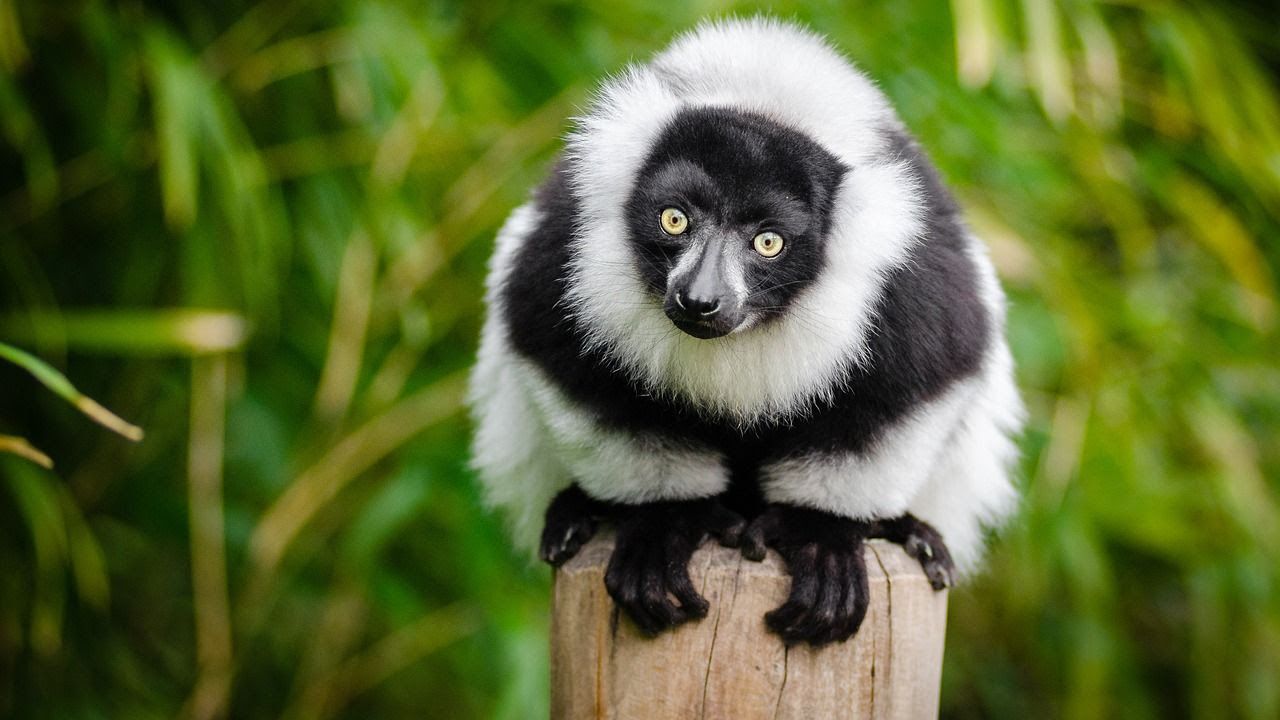
Last chance to have your say for 2024
Membership that helps you make a difference for animals, people, and the planet - now wouldn't that be something special...
The INTERBEING platforms highlight interconnection. They combine science, compassion, and community so that you have a toolbox of opportunities for positive change. You are supported to feel good while doing good for animals, people, the planet and yourself.
The four interconnected platforms include:
- Regular webinars to learn from experts - but who do you want to hear from?
- Tools and resources that put science into practice - but what's most helpful?
- Topics that highlight interconnection - but what topics are interesting?
We're about to plan the platforms for 2024
You get to guide the decision making
Last chance to have your say
Not a member?
That's okay! We make a lot of free resources that you can access without being a member. Our goal is to make learning accessible, interesting and interconnected. You can...
You want a membership that continues to work for you - Survey

You want a membership that continues to work for you
Which is why we we're asking you:
What would you like to see more of in 2024?
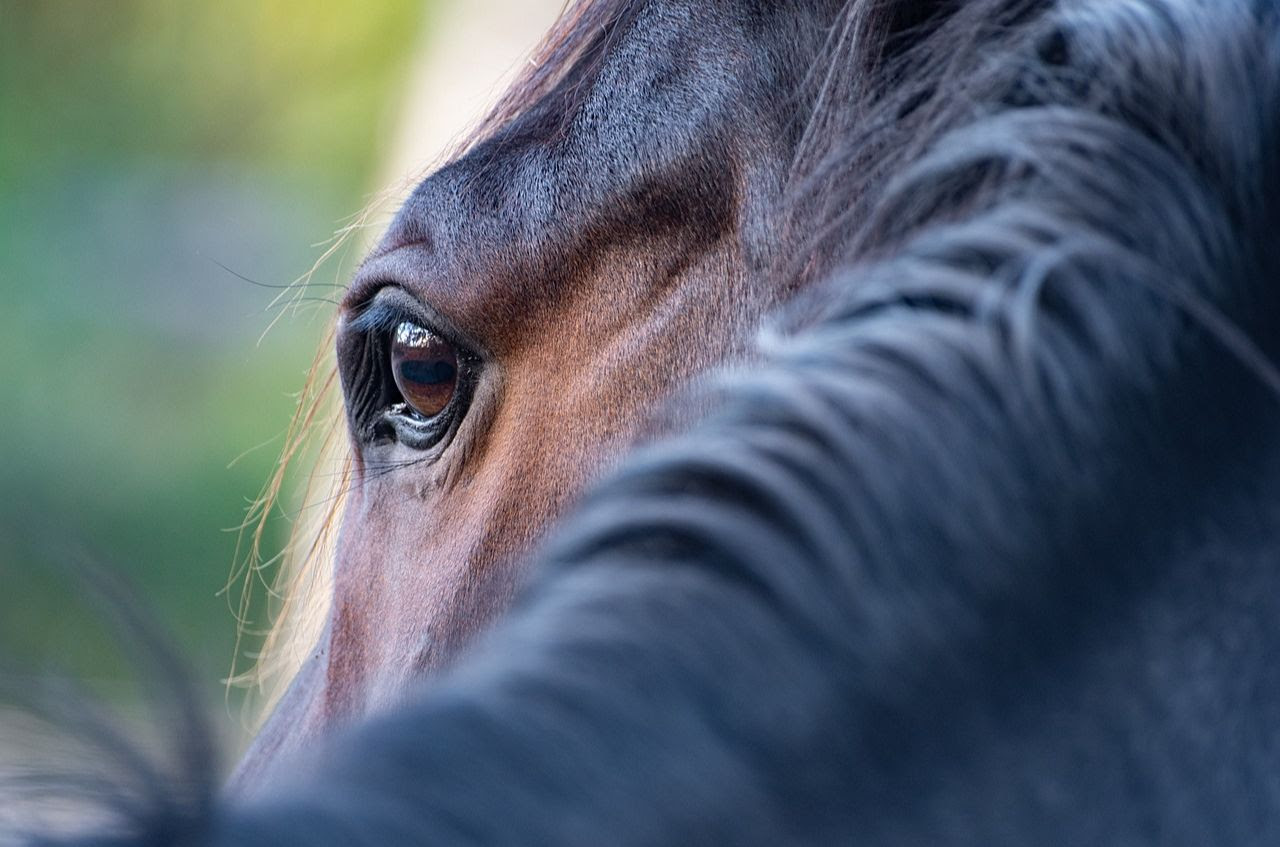
The Animal, Human and Planetary wellbeing platforms, including Foundations, are designed for you. They should be an interesting place, full of support and help with how to actually put your learning into practice in the real world.
Which is why we're already looking ahead.
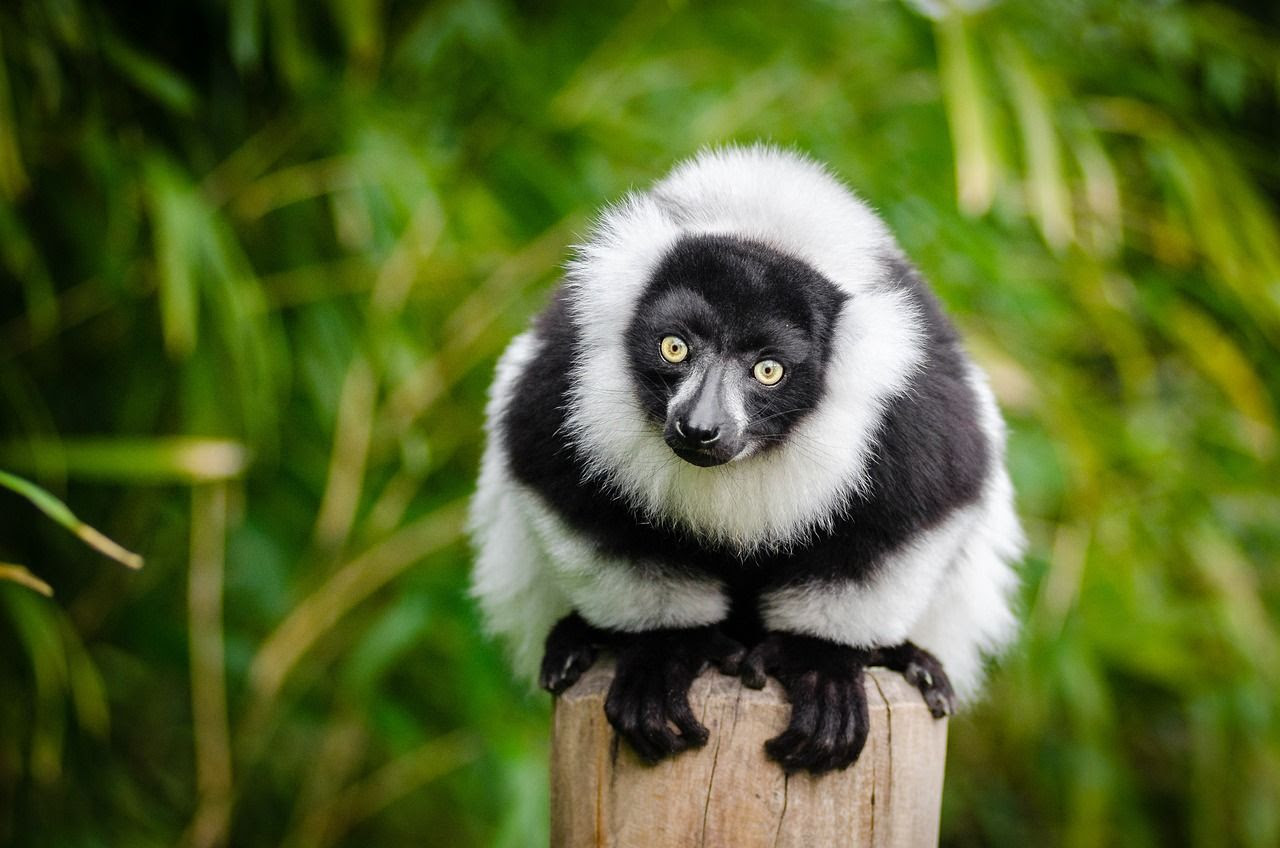
To make the platforms work as best as they possibly can for you, they need to be tailor-made and designed with care. Could you spare a couple of minutes to help us do that for you?
This survey won’t take long - we promise!
Thank you!
Coming to the Conferences?

To do that, we all need to be sharing with and learning from others. Conferences are exciting places to do just that. Which is why we’re off to Ohio!
AnimalConcepts at AZA Conference
Consider the animals that you care for.
What do they do when you're not around to watch them?
We'll be presenting on this very topic at the Association of Zoos and Aquariums Annual Conference hosted by Columbus Zoo. We'll explore techniques and technologies to improve the experience of animals overnight and throughout their lifespan. We're also presenting two posters covering human wellbeing and food sourcing practices within zoos.
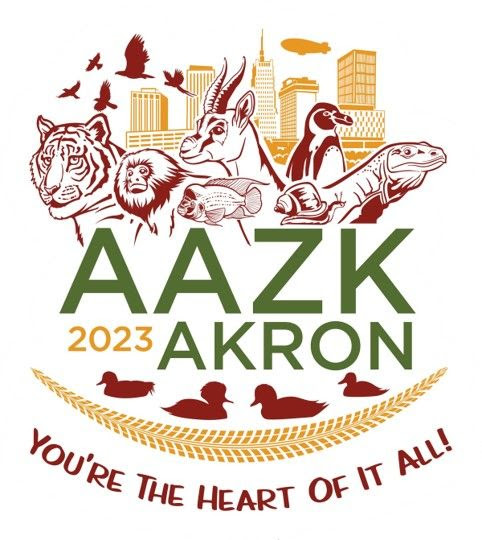
AnimalConcepts at AAZK Conference
The Keynote: How do you care?
How do you care for yourself as an individual. At a leadership level. And as a whole team or organisation. How do you care with compassion and lead with purpose?
Our Keynote Speech at the Nationa...
Sustainable practices at animal care organisations & sleep in the digital age
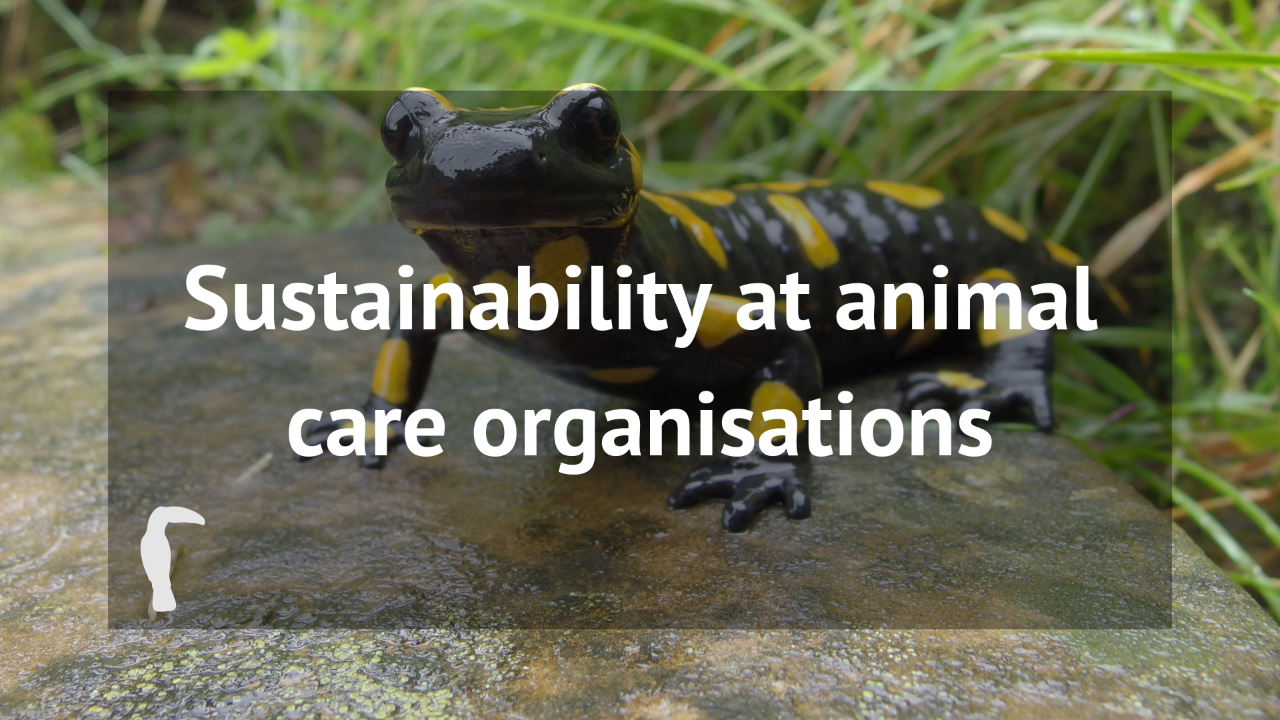
Sustainable practices at animal care organisations
Sustainability is becoming an increasingly important topic in the management of zoos, aquaria, and other animal care organisations, recognising their responsibility to reduce their environmental impact and promote sustainable practices. Many organisations are involved in conservation, education and research, and sustainability is essential to the success of these efforts too. Visitors expect contemporary institutions to be leaders who promote sustainable practices and demonstrate their commitment to environmental preservation.
Animal care organisations play an important role in meeting the UN Sustainable Development Goals (SDGs). Annually, AZA-accredited zoos and aquariums provide information about their green business practices through AZA’s Green Practices survey. The database created from this survey serves as a tool for members to document their staffing, the sourcing of local food, registration of greenhouse gas emissions, and ...
Discovering urban green areas & wild animals in cities
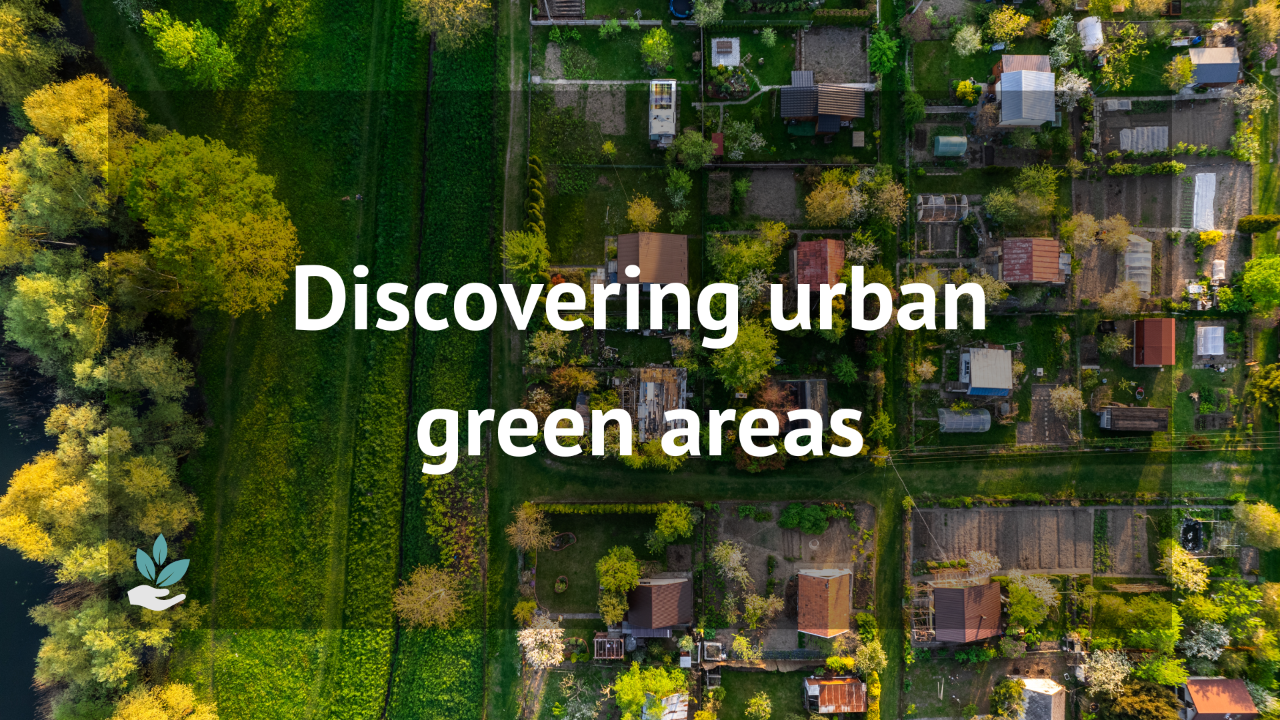
The importance of urban green spaces
We know going for walks is a good idea to connect with the world around us, disconnect from work, get away from screens, enjoy time with family or friends, or do a bit of self-care by practising walking meditation. However, living in a busy city or an urban area does not always make this easy. Considering the high temperatures we are currently experiencing due to climate change, we might need to adjust the times we walk and where we walk. More and more towns and cities are planting and maintaining green spaces with trees and shrubs which are not only beautiful and soothing to look at but also provide immediate benefits. The air is cooler, you can sit in the shade, and everything becomes quieter which can help you feel more relaxed. Urban green spaces are important to your wellbeing, as well as other people, animals, and other vegetation sharing these spaces.
Urban green areas are vital components of cities and urban environments. These areas encom...
Seminar in France on Take care to give care, Trainer-animal interactions & Respect as a transformative force
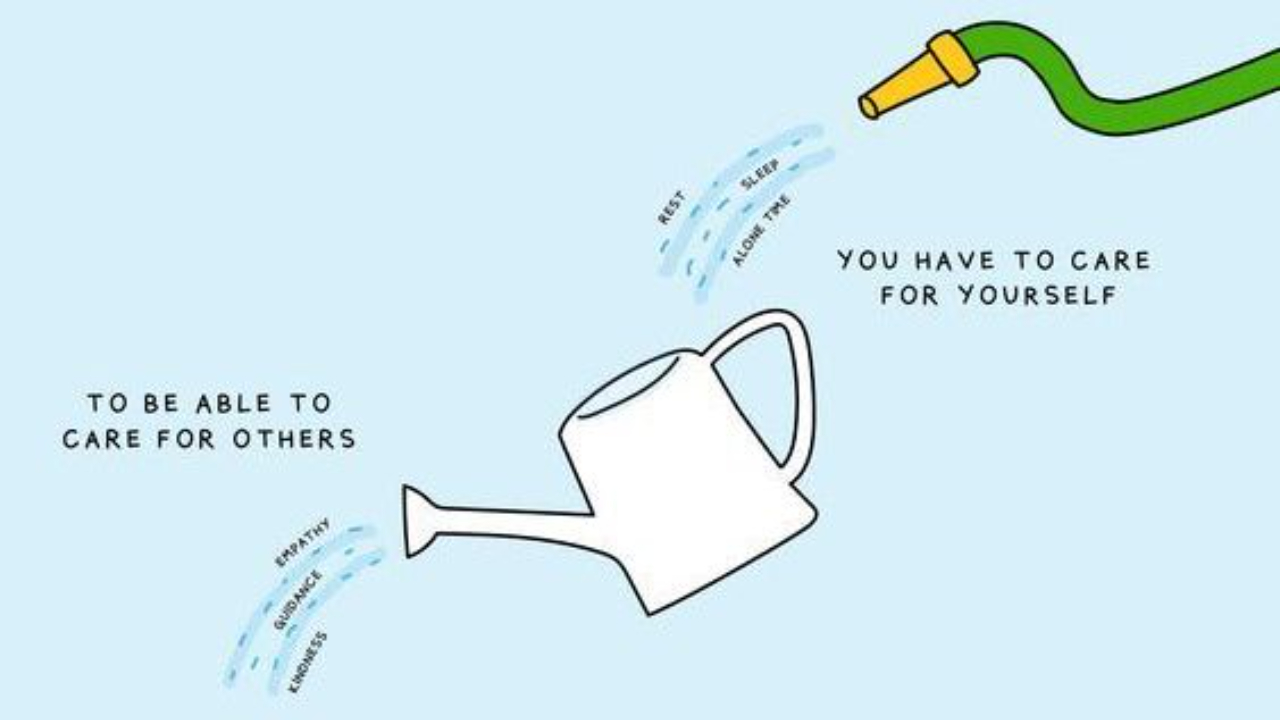
Seminar in France in French on Take care to give care: Prendre soin de soi pour prendre soin des autres
"I look forward to hearing Sabrina again inspire professionals to keep their own well-being part of the equation. I often see passionate professionals who get educated to do their job better with more knowledge in their field. They are aware it can drain a lot of their energy and influence how they practice; yet, so few of them have the tools and techniques to keep it up and be able to take care of themselves. Thus I look forward to hearing Sabrina again inspire them to keep their own well-being as part of the equation. Sabrina makes it a whole experience: not just a few words to cheer up, but another perspective for another lifestyle", say seminar organiser Ingrid Mulson from K9 voice.
En quoi consiste ces deux jours ?
Nous ne pouvons donner aux autres, et le faire durablement, que si nous aussi nous nous sentons bien. Pendant deux jours, Sabrina nous proposera des outils et d...
Master course collaboration at University of Padua & Undigital
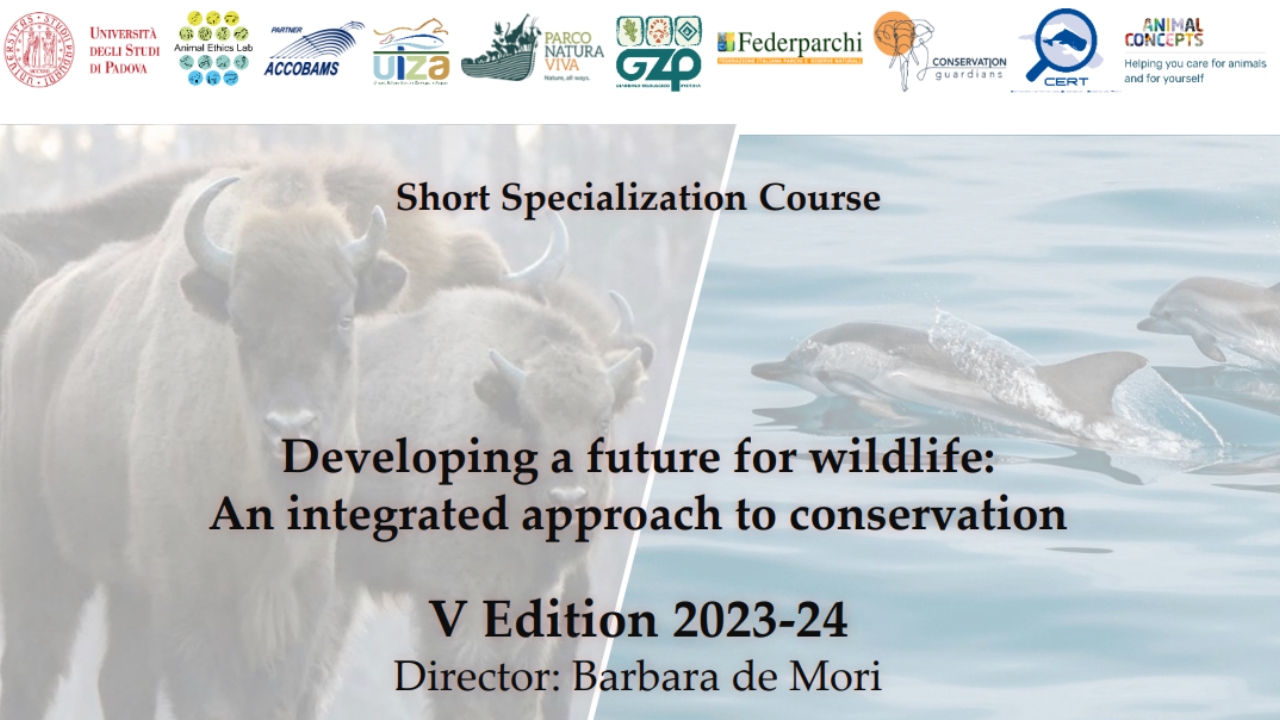
AnimalConcepts is delighted to announce the collaboration with the University of Padua in the V edition of the specialisation Master course "Developing a future for wildlife: An integrated approach to conservation".
This course aims to train professionals in the conservation and management of wildlife. Students will have the opportunity to develop an integrated approach, based on a One Health perspective, both theoretical and technical, and practical, to manage wild animals, species and habitat preservation projects, in a sustainable and local conflict management perspective. The course will develop a perspective of sustainability and management of local conflicts based on the human dimensions approach. The course is divided into three modules, with various topics such as:
- Ecology and biodiversity
- Human-Wildlife conflict and interaction
- Wildlife welfare
- Biotechnology for conservation
- Human dimension and conflict management
- Conservation ethics and education
You can find mor...
The team of AnimalConcepts is growing!
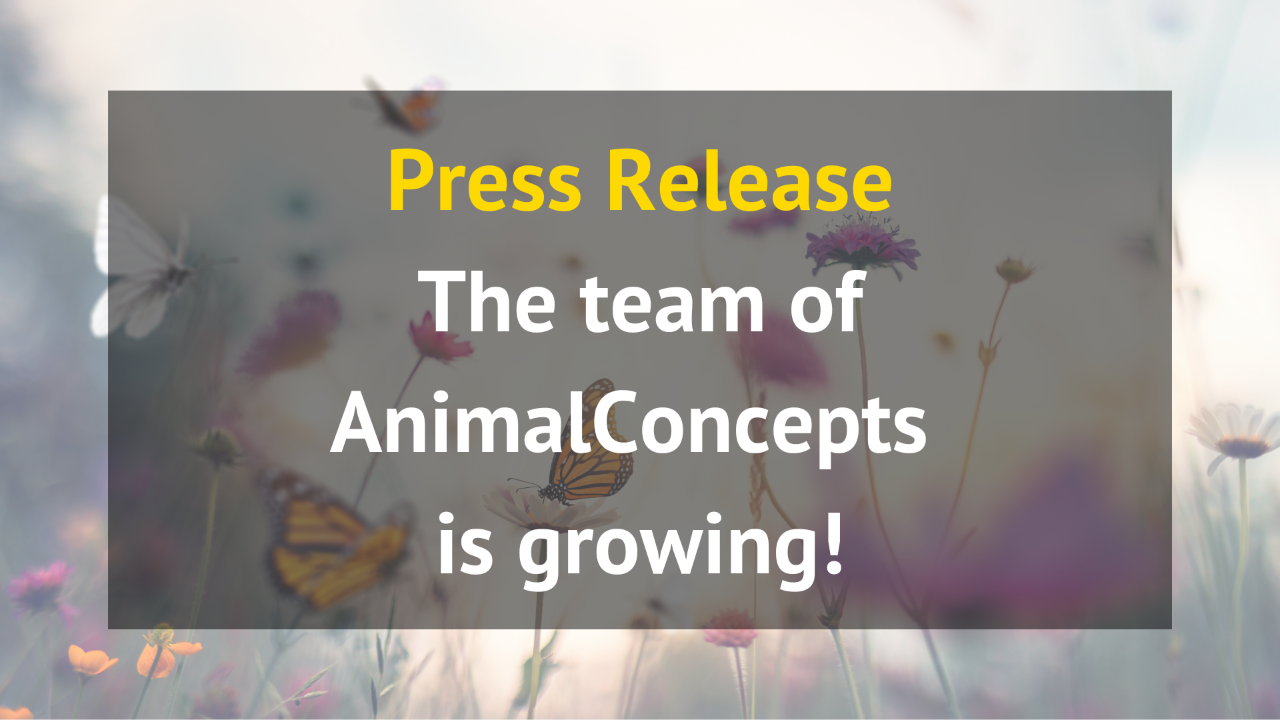
Press Release
AnimalConcepts is joyful to welcome Irma Verhoeven MA and Hannah Jenkins BSc to the team! Irma joins as an Environmental, Education and Social Architect and Hannah as a Storyteller.
Global collaboration is a fundamental value at AnimalConcepts. Irma and Hannah will play important roles in supporting and expanding our services and resources advocating for animal, human, and planetary wellbeing. AnimalConcepts is committed to the Earth Charter and greatly values the overarching principle ‘respect and care for the community of life’. We use the Earth Charter as an ethical lens to guide our decisions and work towards a just, sustainable, peaceful and ethical society. Continuing to create and embody a culture of care is core to our purpose and rooted in and based on an interconnected culture of care and respect. Our perspectives, beliefs, narratives, and expectations have an influence on how we care for ourselves, animals, and the planet. Nurturing these in a more fruitful, ...
BIAZA Research Conference, Bodywork & SiP#160 Welfare assessment tools in zoos

Annual BIAZA Research Conference
Recently BIAZA held its 25th Annual Research Conference, with many talks and poster presentations from professionals from the field. Max Norman, Animal Welfare and Conservation Coordinator at AnimalConcepts attended the in-person event at Dudley Zoo & Castle in the United Kingdom.
"With a topic of Peering into the past and looking to the future it was excellent to hear much reflection on best practice and how we can do better for animals and for people for the future", says Max Norman.
The team at AnimalConcepts presented a poster on traditional management practices and facility design with suggested improvements in non-public animal management areas, often called “back-of-house”, in zoos, sanctuaries, and research facilities. Such improvements are integral to enclosure design that aims to optimise animal wellbeing on a 24/7 basis, promote positive affective states and enhance quality of life.
You can freely download the poster presentation HERE a...

